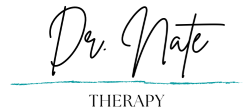When Self Care Feels Overwhelming: Micro Acts That Shift the Energy
We hear about self care everywhere. Articles tell us to take long baths, book massages, or spend a day away from our responsibilities. Social media feeds are filled with checklists and routines promising to recharge our energy. For some people, these suggestions are helpful. For others, they feel completely unrealistic.
If you are already stretched thin, the thought of setting aside hours for self care can feel like one more item on an endless to-do list. Clients sometimes tell me, “I know I should be doing more for myself, but I can barely keep up with the basics.” That sense of pressure can turn self care into something heavy rather than something restorative.
The truth is that self care does not have to be big, elaborate, or time consuming. Sometimes the smallest shifts are the ones that actually move us forward. What I like to call “micro acts of self care” are accessible, gentle practices that meet you where you are. They may not fix everything, but they can change the energy of a difficult moment and help you take the next step with a little more strength.
Why Traditional Self Care Can Feel Out of Reach
Before we talk about micro acts, it is worth naming why traditional self care advice often feels overwhelming.
- Time and energy demands. If you are working long hours, parenting, or managing health concerns, setting aside a large block of time may not be realistic.
- Financial pressure. Many self care ideas involve spending money. Massages, retreats, or even gym memberships are not accessible to everyone.
- Perfectionism. Some people feel they need to do self care “the right way.” If they cannot follow a plan perfectly, they give up entirely.
- Emotional heaviness. When you are depressed or anxious, even small steps can feel monumental. Telling yourself you should be doing more can deepen shame instead of creating relief.
Understanding these barriers can be freeing. You do not have to wait until you have more time, more money, or more motivation. You can start where you are with what you already have.
What Are Micro Acts of Self Care?
Micro acts are simple, brief, and often spontaneous ways of tending to yourself. They do not require preparation or large chunks of time. They work best when you frame them as shifts in energy rather than tasks to complete.
Examples include:
- Taking one slow, intentional breath before moving to the next item on your list
- Drinking a glass of water and noticing the refreshment
- Sending a kind text to a friend and allowing yourself to feel connected
- Stepping outside for sixty seconds to feel the air on your face
- Stretching your shoulders or unclenching your jaw
These are not dramatic interventions. They are small signals to your body and mind that you are paying attention to your needs. Over time, these signals add up and create a more sustainable rhythm of care.
The Psychology Behind Small Shifts
Why do micro acts matter? From a therapeutic perspective, they interrupt cycles of stress and depletion.
When you are overwhelmed, your nervous system can get stuck in fight, flight, or freeze. Small physical or emotional shifts remind your body that it is safe to settle. A slow breath or a glass of water may sound insignificant, yet it cues your nervous system to pause. That pause is what makes space for change.
These small actions also build self trust. If you tell yourself you will run five miles every morning and then cannot follow through, you may feel like you failed. If you tell yourself you will pause for thirty seconds to notice your breathing and you do it, you reinforce the belief that you are capable of caring for yourself. This sense of trust can become the foundation for larger acts of care down the road.
Micro Acts in Daily Life
Here are some practical ways to weave micro acts into ordinary moments.
- Morning reset. Before checking your phone, place a hand over your chest and take one steady breath. Notice your heartbeat.
- Workday pause. Every time you get up to refill your coffee or water, roll your shoulders in a slow circle.
- Transitions. When you arrive home, sit in your car for thirty seconds before going inside. Use that moment to let go of the day’s tension.
- Before sleep. Write down one thing that felt good or meaningful about your day. It can be as small as a kind smile from a stranger.
- Moments of struggle. If you feel overwhelmed, look around and name five things you can see. This grounds your body in the present.
Each of these actions takes less than a minute, yet they create space for your nervous system to soften and your mind to reset.
Letting Go of All or Nothing Thinking
One of the biggest obstacles to self care is the belief that it has to be all or nothing. You might think, “If I cannot commit to a full routine, it is not worth doing anything.” In reality, small steps are often the most powerful because they are sustainable.
Imagine you are carrying a heavy backpack. Taking it off completely would be wonderful, but even shifting it slightly or setting it down for a moment can give you enough relief to keep moving. Micro acts are like those small shifts. They may not remove the weight entirely, but they lighten the load just enough.
Compassion Over Obligation
Self care becomes overwhelming when it turns into another expectation. Instead of thinking, “I should be doing more for myself,” try asking, “What do I need in this moment?”
This question reframes self care from an obligation into an act of compassion. Sometimes the answer will be something big like taking a day off work. Often it will be something small like closing your eyes for a few seconds or listening to a favorite song. Both are valid. Both matter.
Therapy as a Partner in Self Care
For many people, it is difficult to give themselves permission to care in even the smallest ways. Old stories about worthiness or guilt can get in the way. Therapy can be a space to untangle those stories and practice new ways of relating to yourself.
Final Thoughts
If self care feels overwhelming, you are not failing. You are human, navigating real stressors in a demanding world. You do not have to overhaul your life or create a perfect routine to begin caring for yourself.
Start small. Take one slow breath. Stretch your shoulders. Drink some water with intention. Each act is a reminder that you are worthy of care right now, exactly as you are.
Healing often begins not with grand gestures but with small, steady signals of kindness toward yourself. These micro acts shift the energy, and over time, those shifts become a path toward renewal.

